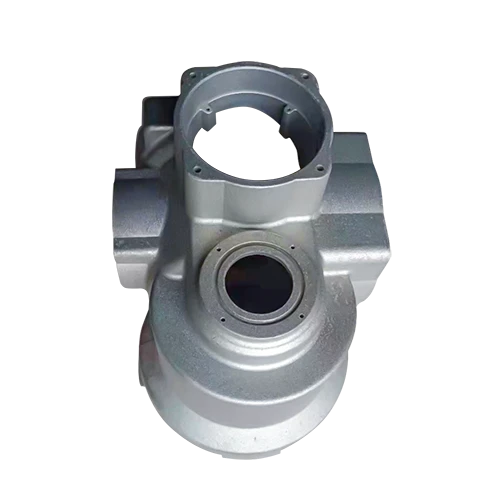Mobile:+86-311-808-126-83
Email:info@ydcastings.com
twin impeller
The Twin Impeller A Revolution in Fluid Dynamics
In the realm of fluid dynamics, the design and efficiency of impellers play a crucial role in determining the performance of pumps and turbines. Among the various designs, the twin impeller has emerged as a significant innovation, offering enhanced fluid movement and energy efficiency. This article explores the functioning, advantages, applications, and future potential of twin impellers in various industries.
Understanding the Twin Impeller Design
A twin impeller consists of two impellers that operate in unison to manipulate fluid flow. These impellers can either be configured in parallel or in series, depending on the specific application requirements. The dual-impeller design allows for a greater increase in flow rate, pressure, and overall efficiency when compared to single-impeller systems.
In a typical twin-impeller setup, the first impeller increases the velocity of the liquid, while the second impeller continues to accelerate the fluid or increases the pressure through a designed volume. This synergy not only enhances the performance but also reduces the space required for installation, making twin impellers a compact and cost-effective solution.
Advantages of Twin Impellers
1. Increased Efficiency One of the most significant advantages of twin impellers is the improvement in efficiency. The combined energy transfer from two impellers minimizes energy losses, resulting in lower operational costs. This feature is particularly beneficial in industrial applications where energy consumption is a critical concern.
2. Higher Flow Rates Twin impellers can handle larger volumes of fluid compared to their single-impeller counterparts. This capability is crucial in applications such as wastewater treatment plants and industrial cooling systems, where high flow rates are essential for maintaining process stability.
3. Better Pressure Management With two impellers working together, the system can maintain more consistent pressure levels. This stability is vital for processes requiring precise fluid dynamics, such as chemical manufacturing and pharmaceuticals.
4. Versatility The twin impeller design can be adapted for various applications, including centrifugal pumps, fans, and compressors. This versatility allows industries to implement a single solution across multiple processes.
twin impeller

5. Reduced Cavitation Risk Cavitation is a phenomenon that can cause significant damage to pump systems. Twin impellers can help mitigate the risk of cavitation due to their ability to manage pressure fluctuations effectively, thereby extending the life of the equipment.
Applications of Twin Impellers
Twin impellers find extensive use in a variety of industries. In the chemical and petrochemical sectors, they are employed in mixers and reactors, ensuring efficient handling of viscous fluids and minimizing energy costs. In water treatment, twin-impeller pumps are essential for transporting large volumes of water through filtration and treatment systems.
Moreover, HVAC systems utilize twin impellers to enhance airflow within ventilation and air conditioning units, ensuring optimal thermal comfort while maximizing energy efficiency. In the power generation industry, twin impellers are used in turbines, providing robust energy conversion from potential to kinetic energy.
Future Potential of Twin Impellers
As industries continue to prioritize energy efficiency and sustainability, the demand for advanced fluid dynamics solutions like twin impellers is expected to rise. Ongoing research and development are focused on optimizing materials and designs to further improve efficiency and reduce environmental impact.
Emerging technologies such as smart sensors and control systems integrated into twin impeller designs could lead to real-time monitoring and automation, increasing overall system intelligence. This integration would enable predictive maintenance, optimizing operational efficiency and minimizing downtime.
Conclusion
The twin impeller represents a pivotal advancement in fluid dynamics, offering numerous advantages over traditional impeller designs. With increased efficiency, higher flow rates, and versatile applications across various industries, it is a game-changer that addresses contemporary challenges in energy and resource management. As innovation continues to shape the future, twin impellers will undoubtedly play a key role in driving efficiency and sustainability across multiple sectors.
-
Understanding Metal Casting TechniquesNewsApr.02,2025
-
Understanding Exhaust Manifolds for Enhanced Engine PerformanceNewsApr.02,2025
-
The World of Metal FabricationNewsApr.02,2025
-
Key Components for Pump and Turbo EfficiencyNewsApr.02,2025
-
Essential Tools for Automotive Maintenance and RepairNewsApr.02,2025
-
Durable Valve Components for Effective Water ManagementNewsApr.02,2025











